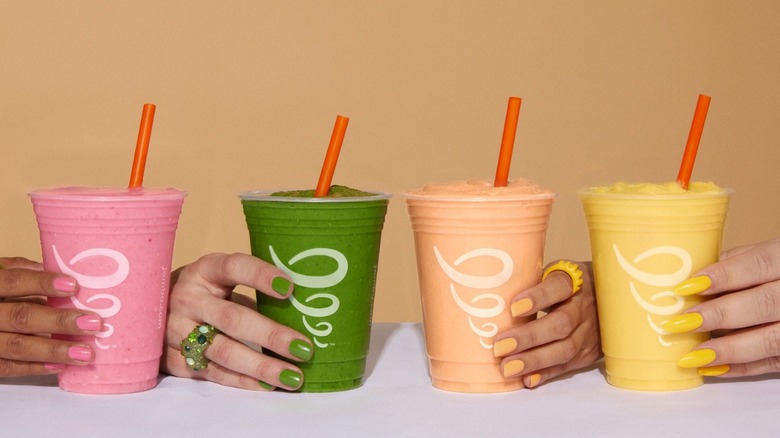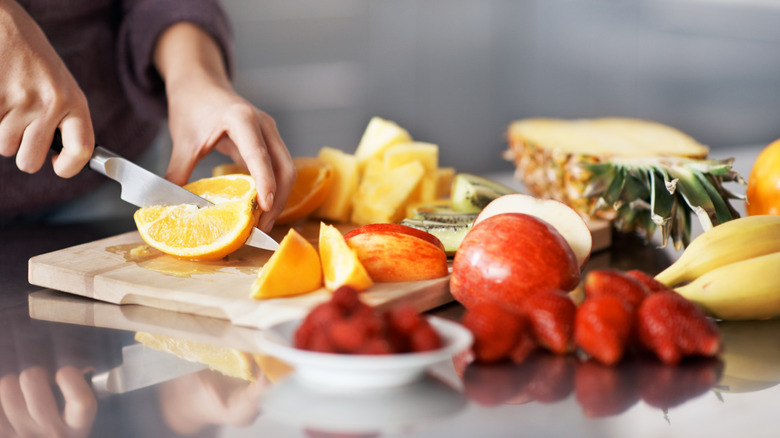Are Jamba Smoothies Made With Real Fruit? What To Know Before You Go
After a good workout, you're probably looking for a way to refuel that won't make you feel like you're counteracting that last hour of intense pilates. Maybe you spotted that Jamba by the entrance on your way into the gym and you've been dying for a Pacific Passion or Peaches and Cream smoothie from the Jamba secret menu ever since. As you get to the counter, you may stop to wonder: Are Jamba smoothies even made with real fruit?
The short answer is yes, Jamba smoothies do contain real fruit. So, the Strawberries Wild smoothie will have actual chunks of strawberries, the Caribbean Passion smoothie will have real peaches, the PB + Banana smoothie will have real bananas, and so on. Although Jamba does use real, frozen fruit in its smoothies and bowls, the chain also relies heavily on fruit juices from concentrate, which aren't nearly as healthy as consuming actual pieces of fruit. Some smoothies, such as the Aloha Pineapple, use more concentrated fruit juice than actual pieces of fruit.
Jamba uses real fruit as well as concentrated fruit juices
Jamba uses concentrated fruit juices in a lot of its smoothies, perhaps even the majority of them. Even though the Peach Perfection smoothie uses real frozen peaches in the blend, it also depends heavily on four different kinds of fruit juices from concentrate, which detracts from the nutritional benefit. You'd retain more fiber and important minerals from drinking a smoothie with two or three real peaches than you would a smoothie with parts of a real peach and a majority of concentrated peach juices. After all, there is a nutritional difference between smoothies and juices.
When fresh fruit is turned into concentrate, it is heavily processed until the majority of water is removed. During this process, the fruit may lose its flavor or color, so many manufacturers will add artificial sweeteners or flavor packs. Whether the manufacturers add artificial sweeteners or not, a fruit juice concentrate is essentially all of the fruit's sugar with none of the fruit's pulp or pith. If we do the math, one small Orange Dream Machine smoothie from Jamba will set you back 61 grams of sugar, while two whole cups of fresh oranges will cost you about 28 grams – but with fresh oranges, you'll get all of the added benefits from the orange pulp. Jamba may use real fruits in its smoothies, but the brand also mixes in a bit more than just the fresh stuff.

